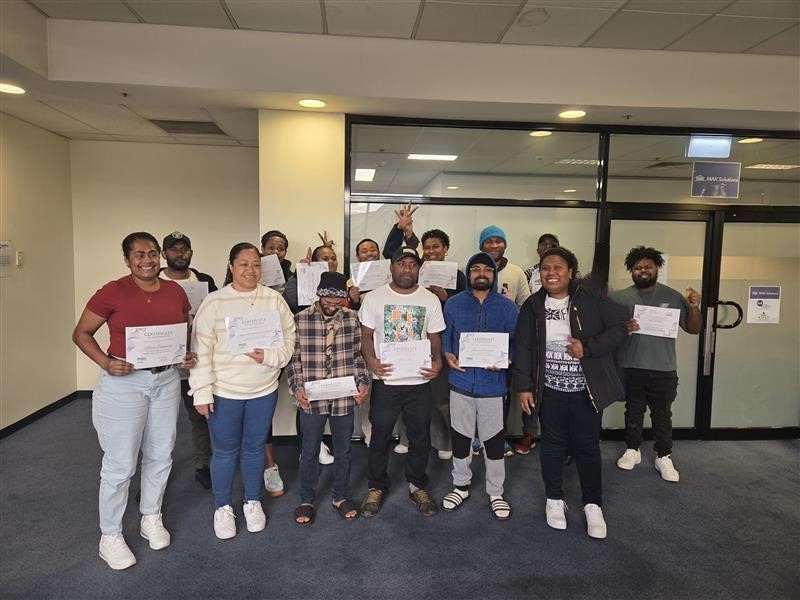
JBS Foods Australia partnered with MAX Solutions for a tailored Workplace-Based Training Project for 18 Pacific Australia Labour Mobility Scheme (PALM) Visa workers across the Launceston, Longford and surrounding areas of Tasmania.
The project primarily focused on overcoming the challenges faced by the employees through improving their language, literacy, numeracy and digital skills, to help them engage safely in the workplace, manage their finances with confidence and participate fully in the community while in Australia.
Through the SEE Program, JBS Foods Australia’s employees were able to successfully improve their English language and oral communication skills, assisting them to confidently follow instructions, ask questions and contribute to team discussions. They also developed their numeracy skills, equipping them to crosscheck recorded data, compare weight measures and spot errors before they become costly mistakes. Employees also learnt how to safely log into workplace IT systems, complete online training and protect themselves from online scams.
Since the completion of the project, JBS Foods Australia has noticed their employees are more confident, while there has also been an increase in work quality and an increase in their employees looking to further upskill. These new and improved skills assist employees with keeping up to date with workplace demands, adapt to new technologies and aid them in their everyday life.
Mijieli, one of the employees who participated in the project, said:
“I am so glad to be part of this program that taught me how to improve my English. ... It broadened my knowledge on literacy and numeracy.”

Green Technology Recycling
Organisation: TAFE NSW
Project type: Workplace-Based Training Project
State/Territory of training: Canberra, ACT
The owner of Green Technology Recycling engaged TAFE NSW to create a tailored and transformative 10-week SEE Workplace-Based Training Project. Green Technology Recycling’s employees participated in this project. This project was designed to enhance participants’ digital literacy and workplace communication skills, enabling them to engage more effectively in day-to-day business operations.
In the beginning, each participant developed a personalised learning plan with clear and achievable goals. Most focused-on building practical digital competencies such as navigating spreadsheets, managing emails and using cloud-based storage systems relevant to their roles. A shared objective among the group was to gain confidence in using computer software across various devices, to easily perform their day-to-day tasks at work.
As the program progressed, participants steadily built their skills through hands-on experience and guided learning. By the end of the project, they had successfully met their goals. They demonstrated confidence in using company software on both laptops and mobile devices and gained a solid understanding of the business’s organisational structure, policies and procedures.
Beyond technical skills, the training fostered stronger collaboration and a more supportive team culture. The shared learning journey brought participants closer together, enhancing communication and mutual support in the workplace.
All participants successfully achieved competency in all units delivered during the program.
